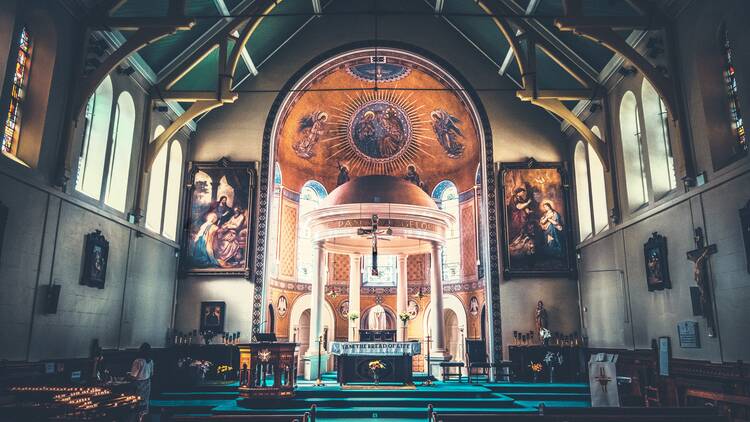So many have died. So many grieve without the grace of a proper farewell. Our darkest days seem to be synched with the Christian calendar. We have lived a Lent we could never have imagined. Holy Week comes and goes while we are quarantined. We are like those first disciples, who hear reports of the risen one, but we have not seen him for ourselves.
Does missing Mass on Sunday ever come to feel right? Not according to Noel Crowe. When the events of Niall Williams’s lovely new novel of Irish village life,This Is Happiness, take place, Noel is 17. He narrates them six decades later:
When you’ve been raised inside a religion, it’s not a small thing to step outside it. Even if you no longer believe in it, you can feel its absence. There’s a spirit-wound to a Sunday. You can patch it, but it’s there, whether natural or invented not for me to say.
Although he had briefly been a seminarian, at age 17 Noel tells his family that he will not be going with them to the Easter Vigil. Still, even for this young unbeliever, there is that “spirit-wound.”
When they were gone I fell again into that place of lost faith. My grandparents went to the church without thinking, it seemed to me, without question, and I envied them that. That year’s Easter Vigil could be threaded on to all the others they had attended down the years and, though they would not have thought of it in these terms, these things were footholds and, to the man I was then, seemed both to belong to them and give them belonging.
These things are no more, and the feeling I am telling here, of the entire parish gone to church to await the lighting of the Easter candle, and what it felt like to know that and not be going, may have perished too. It felt like a tide had gone out and taken all the ships with it, and you were left on a shore, a debris.
We feel that way, don’t we? Like debris on a shore. What is Easter without the Eucharist? There is a terrible absence among us. We have a spirit-wound.
A virus can keep us from gathering. A spirit-wound, it can curtail the sacramental life Christ gave us. But no virus can separate us from Christ.
Modern media, so often a source of distraction and temptation, has partially redeemed itself. It has become a channel of grace. Still, it cannot replace the living communion we call the church any more than the printing press did. Media is not sacramental. Our life in Christ is more than words and images.
The sacraments and their ordained ministers are how the church constitutes herself in Christ. They celebrate what Christ has mandated. They mark the contours of his promise to be present among us. The church cannot be true to herself without her sacred rites and Levites. Their arrest is agony. But the sacraments themselves are not the life of the church. No, her life-breath is the Holy Spirit.
Two persons of the Most Holy Trinity were summoned forth from the tomb by the Almighty Father: a beloved Son and a Holy Spirit. The risen one never intended to limit himself to a small band of disciples, appearing ever so briefly. The presence of the eternal, incarnate and risen Son cannot be contained because he gives himself to us through the Holy Spirit.
A virus can keep us from gathering. A spirit-wound, it can curtail the sacramental life Christ gave us. But no virus can separate us from Christ. Why? Because the risen one gave us his very Spirit, and this Holy Spirit breathes himself into us in every place—to the furthest end of the earth and until the end of time.










